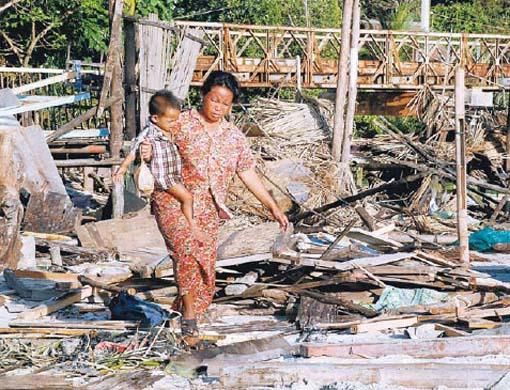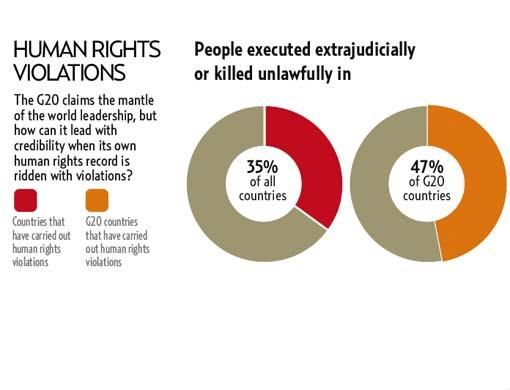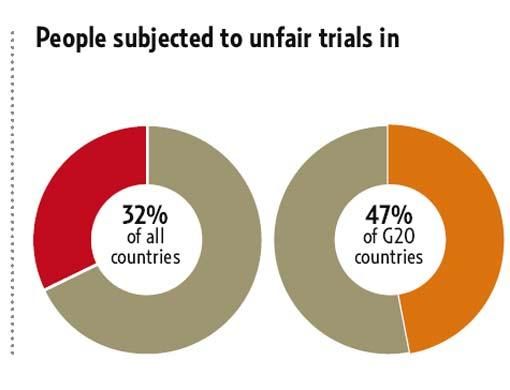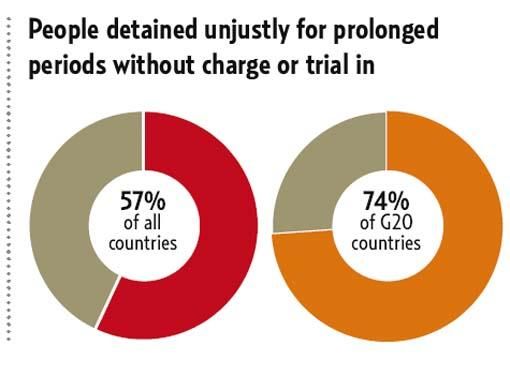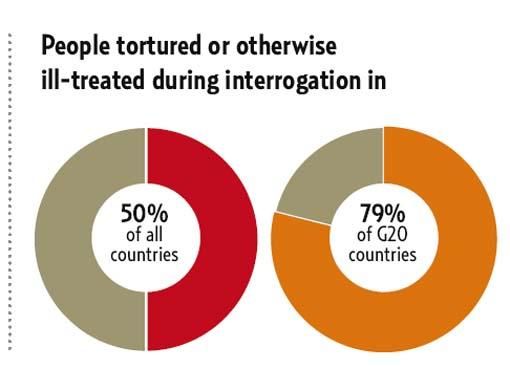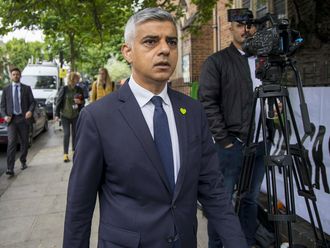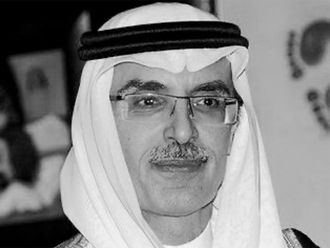Dubai: Governments have not only abdicated economic and financial regulation to market forces, they have failed abysmally to protect human rights, lives and livelihoods, according to Amnesty International.
Drawing a bleak picture of the state of human rights in the world as a result of the global economic crisis, Irene Khan, Secretary-General of Amnesty International, described the economic downturn as a human rights crisis.
In pictures: Rights record hall of shame
Click here to read report on Middle East
Click here to read report on Asia
Click here to read report on Europe
On the sidelines of releasing the Human Rights Report 2009, Khan told Gulf News that billions of people are suffering from insecurity, injustice and indignity as a result of the economic crisis.
The report covers the state of human rights in 157 countries.
The World Bank has predicted that 53 million more people will be thrown into poverty this year, on top of the 150 million hit by the food crisis last year, wiping out the gains of the last decade.
"International Labour Organisation figures suggest that between 18 and 51 million people could lose their jobs. Skyrocketing food prices are leading to more hunger and disease, forced evictions and foreclosures to more homelessness and destitution," the report stated.
Khan doubted the ability of governments to achieve the targets set by the Millennium Development Goals (MDGs), aimed at eliminating poverty by 2015.
She said governments around the globe — especially the rich ones — have shown very little sincerity to achieve the MDGs.
While attributing the failure to the lack of funds, she pointed out that the very same governments were able to find large sums of money to bail out failing institutions.
"They poured money in abundance into failing banks and offered stimulus packages to economies that had been allowed to run amok for years and were now running aground," Khan said.
By the end of 2008, Khan said it was clear that the two-tier world of deprivation and gluttony was collapsing into a deep hole.
Victims of greed As with the case of climate change, the global recession proves once again that the poor suffer the consequences of the rich world's damaging actions.
Khan said the world needs a different kind of leadership, a different kind of politics as well as economics, which works for all and not just for a favoured few.
"We need leadership of the kind that moves states from narrow national selfinterest
to multilateral collaboration, so that the solutions are inclusive, comprehensive, sustainable and respectful of human rights," Khan said.
"There are growing signs of political unrest and violence, adding to the global
insecurity that already exists because of deadly conflicts. The international community seems unable or unwilling to resolve them. In other words: we are sitting on a powder keg of inequality, injustice and insecurity, and it is about to explode.
"Inequality as a byproduct of globalisation has not been limited only to those living in developing countries; its impact is spreading all over the world."
As the October 2008 report of the Organisation for Economic Co-operation and Development (OECD) showed, in industrialised countries too the economic growth of recent decades has benefited the rich more than the poor.
The US, the richest country in the world, ranked 27th out of 30 OECD member states in terms of entrenched poverty and growing income disparity.
According to the UN Commission on Legal Empowerment of the Poor, around two-thirds of the world's population has no meaningful access to justice.
Khan said an informed citizenry, empowered to demand accountability, is a better guarantee that governments and companies will do their job well.
"Freedom is an asset to be encouraged, not suppressed..." she added.
She said Amnesty International believes that the rich nations cannot solve the world's economic and environmental problems without recognising that human rights are the heart of the solution.
"Amnesty International insists that the way to fix things is not going back to what things were like before. The major human rights problems of those years need to be fixed.
"This is a real opportunity for the world powers to recognise that human rights are as important as the economy," she added.
Desperate call of a poor world
Desperate call of a poor world


